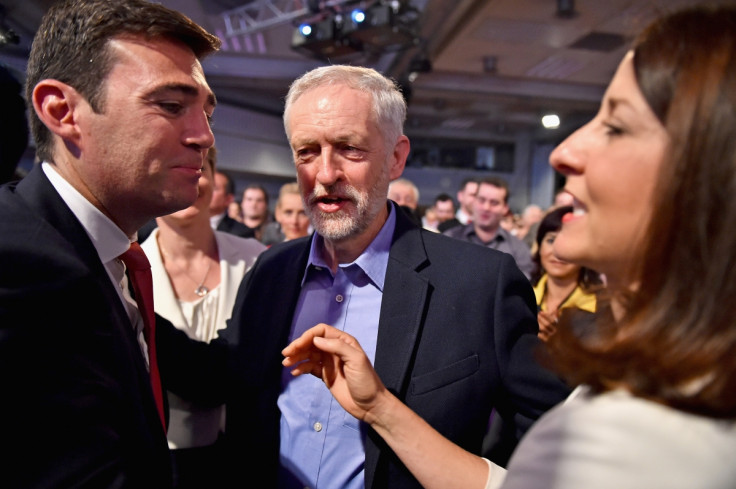James Kelly: A Scottish question for Jeremy Corbyn: 'What makes us inferior to Ireland?'

Like many people who mysteriously ended up on Labour's mailing list without asking to be added, I received an email from Jeremy Corbyn at the weekend offering me the chance to suggest a question to put to David Cameron at PMQs on Wednesday.
But, right now, many of us in Scotland are far more interested in putting questions to the new Leader of the Opposition, a person we are still trying to get the full measure of. The one I'd choose is this: what exactly is it that makes Scotland inferior to Ireland?
Labour's embrace of British nationalism has always been intellectually indefensible, and we may just have to accept that it will continue to be so under Mr Corbyn.
Throughout his long parliamentary career, Corbyn has championed the cause of a united and independent Ireland, even to the extent of offering the hand of friendship to those who were waging a campaign of violence in pursuit of that goal. His new shadow chancellor went further still, insisting that we should actually "honour" the IRA and its bombings for helping to bring about the peace process.
And yet the immaculately peaceful national movement in Scotland, which even in last year's referendum defeat attracted far wider public support than Irish unity currently does, seems to leave Corbyn utterly cold.
To his credit, he has accepted the right of the Scottish people to choose independence in the future if they want (although the language he's used on that point has at times been troublingly ambivalent), but he makes no secret of the fact that he wishes the issue would simply go away.
It's hard not to conclude, therefore, that he thinks Scotland is intrinsically less of a nation than Ireland. Why? Is it simply the fatuous George Galloway argument that Ireland is an island and Scotland is not? (In which case how do we explain France?) Or is it the cynical calculation that Labour is less likely to cobble together a governing majority in the UK without Scotland?
In truth, Labour's embrace of British nationalism has always been intellectually indefensible, and we may just have to accept that it will continue to be so under Corbyn. But unless he can somehow square this circle, it will be impossible for him to win back the bulk of traditional Labour voters who defected to the SNP in May.
Yes, they will like what they hear from him on unilateral nuclear disarmament, and opposition to austerity, and renationalisation of the railways. But for most of them, constitutional progress for Scotland has become an indispensable part of the package, and if that isn't on offer from Labour, they're likely to stick with Nicola Sturgeon.
In fairness to Corbyn, he's freely conceded that his knowledge of Scotland is limited, and he seems to be open to advice from his party colleagues in the Scottish Parliament. In a more rational world, they'd be seizing that golden opportunity by pressing him to put forward a compromise offer of maximum devolution, to enable Labour to triangulate its way out of electoral difficulty in Scotland in much the same way that it did 25 years ago by beefing up its original devolution proposals. Unfortunately, however, Labour's contingent at Holyrood is now largely blinded by hatred of the SNP, and is far more interested in drawing self-destructive lines in the sand.
It's ironic that the final act of the decades-long fight between Labour and the SNP may be heralded by the moment the two parties' leaderships became ideologically closer than ever before.
Listening to these siren voices will, with absolute certainty, drag Corbyn on to the rocks in Scotland. Paradoxically, his hopes of electoral salvation may depend on turning away from his own party and heeding the advice of the SNP instead.
In many ways, the nationalist bloc at Westminster is a much more reliable ally for Corbyn than his own side – he certainly won't need to persuade Alex Salmond or Mhairi Black to vote against Trident renewal or air strikes in Syria. With luck, he'll start to ponder why exactly he's setting himself against his political soulmates on the constitutional question, especially when it's doing him nothing but harm.
If he does eventually reach an understanding with the SNP on more powers for the Scottish Parliament, is it just possible that the outcome of the 2020 election could be what so many expected in 2015 – a Labour minority government supported by the SNP? Corbyn already seems to have learned the most important lesson of Ed Miliband's demise, namely that you can't insult the intelligence of the electorate by pretending you won't do deals in the event of a hung parliament.
If a full-fat socialist Labour party is even vaguely close to winning enough seats in England to be in with a shout of taking office, it will already have overcome extreme odds to allay the electorate's fears on national security and the economy. Setting English minds at rest about the influence of the SNP will be a doddle in comparison, as long as there is openness and transparency about the shape a deal might take.
Sadly, the much more likely scenario is that Corbyn will prove unelectable south of the border. For all that the SNP would love to make common cause with him to bring about a fairer society and a more peaceful world, they are ultimately in the business of winning elections and securing independence.
They will be ruthless in exploiting Labour's weakness in England to point out to voters that only independence can save Scotland from indefinite Tory rule. It's ironic that the final act of the decades-long fight between Labour and the SNP may be heralded by the moment the two parties' leaderships became ideologically closer than ever before.
© Copyright IBTimes 2025. All rights reserved.





















